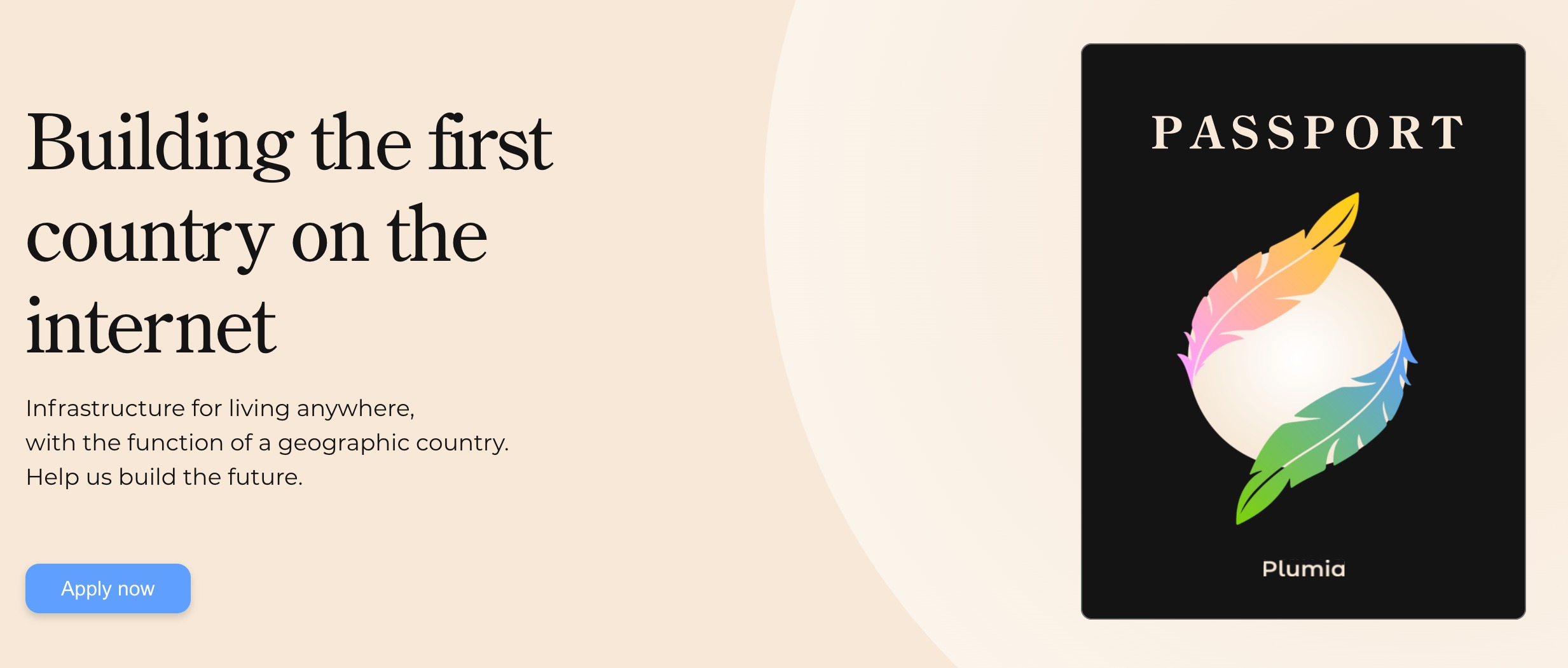Could digital nomads create their own digital country? If the visionaries behind Plumia have their way, the answer is yes.
With the COVID-19 pandemic converting millions of office employees into remote workers, a number of tourist-dependent countries have launched visa programs to attract digital professionals from around the world.
These programs offer incentives such as tax breaks, housing discounts and multiple border entries for digital nomads, but the members of Plumia want more.
“The internet has globalized and digitized so many aspects of life, like banking, ride-sharing and food delivery, but governments have yet to catch up,” Plumia founding member Lauren Razavi told The Next Web.
According to the non-profit organization’s website, one of the primary ways global governments are falling behind is by clinging to the concept of fixed national borders. These “inherently arbitrary” boundaries limit job opportunities and prevent people from living and working in areas that fit their identity.

To make the digital nomad lifestyle available to everyone, Plumia is “working to build a digital country that transcends national borders and democratizes access to opportunity and services, no matter your birth citizenship.”
The idea to build a work-from-anywhere infrastructure and combine it with the function of a traditional country was introduced by remote-focused travel insurance company Safety Wing in 2020. Since then, it has gained the support of over 1,000 remote workers and digital nomads from around the world.
While the concept might seem far-fetched to some, Plumia isn’t alone in its pursuit of a digital nation.

Some blockchain enthusiasts are pushing to replace geographic nations with voluntary peer-to-peer agreements. Meanwhile, countries such as Estonia have digitized their government services to the point where they have essentially become e-republics.
A nation of remote workers would have financial clout as well. As of 2021, the globe’s 35 million digital nomads have nearly $800 billion in annual spending power, which is similar to that of Saudi Arabia and Portugal.
Until the members of Plumia are able to establish a digital nation, they plan to create services and content aimed at remote workers, including an index map that evaluates current digital nomad visa and residency options.
